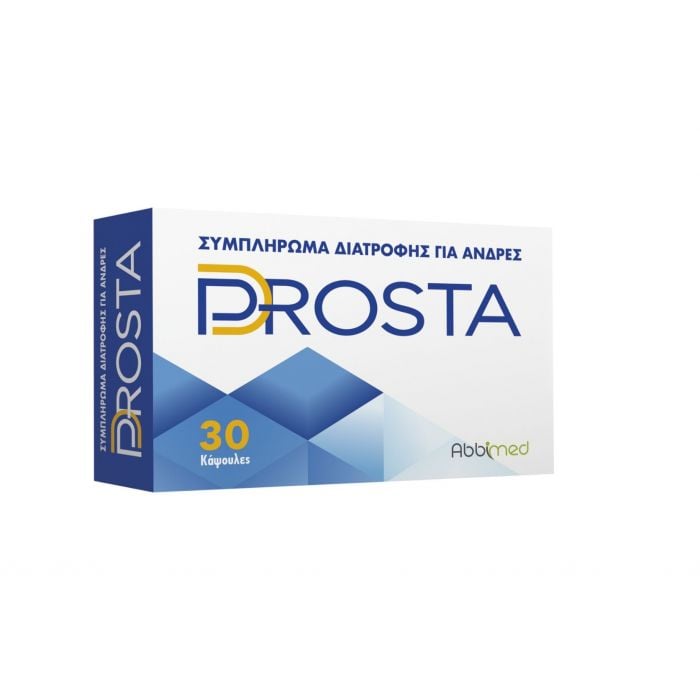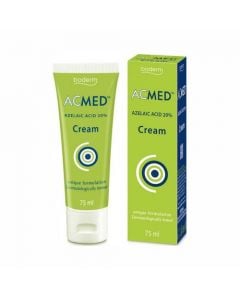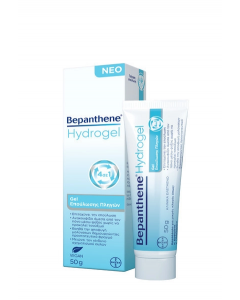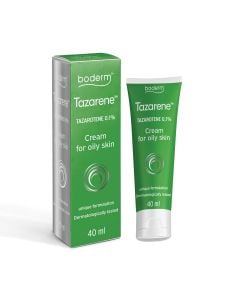Prostate conditions are an important health concern, considering that starting from middle age, both benign prostatic hyperplasia (BPH) and chronic pelvic pain (chronic prostatitis) develop in large numbers of men. Several extracts from plant roots, seeds, fruits, or cortexes such as Saw palmetto (Serenoa Repens) include many substances which are effective and contribute to good prostate and urinary tract function. Some examples are plant sterols, beta-sitosterol, quercetin, lycopene, terpenoids, fatty acids, lectins, vegetable oils, polysaccharides, flavonoids, plant estrogens, and sterols.
D-PROSTA dietary supplement combines phytotherapeutics, Saw palmetto (Serenoa Repens) quercetin, and lycopene with non-pharmaceutical ingredients, zinc and vitamin D, in relevant concentrations that contribute to the support of normal prostate and lower urinary tract functions, dosed as one supplement daily. It has an anti-inflammatory effect that reduces swelling and helps alleviate symptoms caused by chronic or acute BPH, with no impact on sexual competence.
What are the ingredients of D-PROSTA
Saw palmetto (Serenoa Repens)
Saw palmetto is a small perennial palm that is native to the south-eastern coasts of the United States and to tropical Central and South America. Its fruit is black, oval or sphere shaped, rich in fatty acids and phytosterols. It is classified as an essential phytotherapeutic plant, according to a multitude of scientific evidence-based data, for the treatment of symptoms caused by prostate and lower urinary tract problems.
Suggested mechanisms of action include:
- Anti-androgen effect
- Inhibition of type 5-a reductase isoenzymes 1 and 2
- Inhibition of growth factors
- Anti-inflammatory effect
- Anti-estrogen effect
- Anti-swelling effect.
In a recent randomized double-blind study, the patient group that was administered 320 mg of Saw palmetto daily showed significant improvement in urinary tract symptoms, without any side-effects1.
A meta-analysis and systematic review of Saw palmetto use compared to an alpha-blocker (tamsulosin) for a period of at least 6 months, showed similar response against the International Prostate Symptom Score (IPSS) and comparable side-effects (rhinitis, fatigue, dizziness, orthostatic hypotension, dry mouth, and headache), while Saw palmetto was better tolerated regarding ejaculation disorders2.
A recent meta-analysis demonstrated beneficial effect of 12-month use of the lipidosterolic extract of Saw palmetto versus placebo or α-blocker. However, when the extract was administered for 3 months, it showed no significant effect. Therefore, it seems that the extract’s mechanism of action requires a longer period (at least 12 months), but also, that the plant’s effects and side-effects both depend on its quality and the method of extraction3.
The anti-inflammatory effects of Saw palmetto (320 mg daily for 6 months) based on histological and immune-histochemical criteria, has been demonstrated by clinical studies4.
Quercetin
A flavonoid found in over 20 fruits and vegetables, and is known for its anti-inflammatory, antioxidant and anticancer effects. Quercetin has antihypertensive and vasodilator impact, also offering anti-obesity, anti-hypercholesterolemic and anti-atherosclerotic effects. Importantly, despite its highly cytotoxic impact of the substance against cancer cells, it has little or zero impact on normal cells. At the same time, quercetin induces apoptosis, while preventing cell proliferation through various mechanisms (Table 1). Quercetin’s therapeutic effects have been studied in several cancer types, both in vitro and in vivo, and a vast body of literature has studied its role in the management of prostate cancer. Quercetin appears to prevent initiation of this particular type of cancer, as it indirectly blocks the activity of promoters of two important genes AR (androgen receptor) and PSA (prostate specific antigen). In vivo studies of co-administration of quercetin and chemotherapeutic agents have resulted in overcoming resistance to apoptosis in cancer cells, and limited side-effects of chemotherapeutic agents. Clinical trials are warranted to define the required dose and duration of quercetin administration; also to identify biomarkers that would predict response to treatment. Finally, clinical application of quercetin is not established yet, as available pharmacokinetics data are limited5.

Table 1. Proposed models of the effect of quercetin in prostate cancer
Lycopene
Lycopene is an antioxidant, belongs to the class of carotenoids and is found in red and yellow fruits and vegetables. It has antioxidant and antiproliferative effects, also presenting anticancer impact as it is involved in activating the induction of apoptosis, disrupting the cell cycle and the mechanisms of cell adhesion, metastasis, invasion, and angiogenesis. Lycopene also reduces serum PSA levels and controls inflammatory cytokines. These findings suggest that lycopene could be used in prostate cancer prevention and treatment. In men with increased prostate cancer risk, high dietary intake of lycopene could lead to changes in the levels of circulating valine, acetate, pyruvate, and diacylglycerol. According to research, pyruvate may be causally related to prostate cancer, therefore, as lycopene helps lower pyruvate levels, can contribute to the prevention of prostate cancer for this group of men7.
Zinc sulphate
It is well known that there is high concentration of zinc (Zn) and citrate in the prostatic fluid and the peripheral zone of the prostatic gland. In particular, Zn concentration in prostatic fluid is estimated at 590 µg/g and is about 500 times higher compared to Zn concentration in plasma; it is 10-20 times higher in the peripheral zone compared to other similar body elements. This is because epithelial cells of the peripheral zone accumulate Zn, necessary to generate and secrete citrates in the prostate, leading to inhibition of mitochondrial aconitase, which catalyzes transformation of citrates into isocitrates during the initial stages of the Krebs cycle. Consequently, high Zn concentrations lead to high citrates concentrations and high citrate/isocitrate ratio in epithelial cells at the peripheral zone of the prostate, thus demonstrating the very significant role of Zn in normal prostate function. Decrease in Zn levels (60-80%) and, subsequently citrate levels, is the most characteristic trait of prostate cancer and inversely correlates to the progression of the condition. The role of Zn as regulator of apoptosis, makes the decrease a likely cause for rather than a consequence of prostate cancer. Therefore, an adequate dietary intake of zinc is essential for older men, since it helps to maintain physiological prostate function and prevent development of diseases related to ageing8,9,10.
Cholecalciferol (Vitamin D3)
Cholecalciferol is a molecular type of vitamin D and is made by the body when skin is exposed to sunlight. D3 is fat-soluble and is involved in the absorption of calcium and phosphorus, participating in bone mineralization also playing an important role in other tissues. Signaling through cholecalciferol receptor appears to be important in prostate cancer. When administered to tumor models in hamsters, D3 inhibited tumor growth. In brief, D3 has been found to be involved in the induction of cell cycle disruption, apoptosis, expression of p53 tumor-suppressing gene, diversification and inhibition of angiogenesis, invasion, and metastasis; the exact mechanism of D3 anticancer effects is yet to be found.
REFERENCE
1Ishii, I.; Wada, T.; Takara, T. Effects of saw palmetto fruit extract intake on improving urination issues in Japanese men: A randomized, double-blind, parallel-group, placebo-controlled study. Food Sci. Nutr. 2020, 8, 4017–4026
2Cai, T.; Cui, Y.; Yu, S.; Li, Q.; Zhou, Z.; Gao, Z. Comparison of Serenoa repens with Tamsulosin in the Treatment of Benign Prostatic Hyperplasia: A Systematic Review and Meta-Analysis. Am. J. Men’s Health 2020, 14, 1557988320905407
3Russo, G.I.; Scandura, C.; Di Mauro, M.; Cacciamani, G.; Albersen, M.; Hatzichristodoulou, G.; Fode, M.; Capogrosso, P.; Cimino, S.; Marcelissen, T.; et al. Clinical Efficacy of Serenoa repens Versus Placebo Versus Alpha-blockers for the Treatment of Lower Urinary Tract Symptoms/Benign Prostatic Enlargement: A Systematic Review and Network Meta-analysis of Randomized Placebo-controlled Clinical Trials. Eur. Urol. Focus 2021, 7, 420–431
4Gravas, S.; Samarinas, M.; Zacharouli, K.; Karatzas, A.; Tzortzis, V.; Koukoulis, G.; Melekos, M. The effect of hexanic extract of Serenoa repens on prostatic inflammation: Results from a randomized biopsy study. World J. Urol. 2019, 37, 539–544.
5Ghafouri-Fard S., Shabestari F.A., Vaezi S., Abak A., Shoorei H., Karimi A., Taheri M., Basiri A.. Emerging impact of quercetin in the treatment of prostate cancer. Biomed Pharmacother. 2021 Jun;138:111548. doi: 10.1016/j.biopha.2021.111548
6Mirahmadi M., Azimi-Hashemi S., Saburi E., Kamali H., Pishbin M., Hadizadeh F. Potential inhibitory effect of lycopene on prostate cancer. Biomed Pharmacother. 2020 Sep;129:110459. doi: 10.1016/j.biopha.2020.110459
7Beynon R.A., Richmond R.C., Santos Ferreira D.L., Ness A.R., May M., Smith G.D., Vincent E.E., Adams C., Ala-Korpela M., Würtz P., Soidinsalo S., Metcalfe C., Donovan J.L., Lane A.J., Martin R.M.; ProtecT Study Group; PRACTICAL consortium. Investigating the effects of lycopene and green tea on the metabolome of men at risk of prostate cancer: The ProDiet randomised controlled trial. Int J Cancer. 2019 Apr 15;144(8):1918-1928. doi: 10.1002/ijc.31929
8Singh C.K., Chhabra G., Patel A., Chang H., Ahmad N. Dietary Phytochemicals in Zinc Homeostasis: A Strategy for Prostate Cancer Management. Nutrients. 2021 May 30;13(6):1867. doi: 10.3390/nu13061867.
9Sauer A.K., Vela H., Vela G., Stark P., Barrera-Juarez E., Grabrucker A.M. Zinc Deficiency in Men Over 50 and Its Implications in Prostate Disorders. Front Oncol. 2020 Aug 6;10:1293. doi: 10.3389/fonc.2020.01293.
10Karunasinghe N. Zinc in Prostate Health and Disease: A Mini Review. Biomedicines. 2022 Dec 10;10(12):3206. doi: 10.3390/biomedicines10123206.
11Trump D.L., Aragon-Ching J.B. Vitamin D in prostate cancer. Asian J Androl. 2018 May-Jun;20(3):244-252. doi: 10.4103/aja.aja_14_18.








The information below is required for social login
Sign In
Create New Account